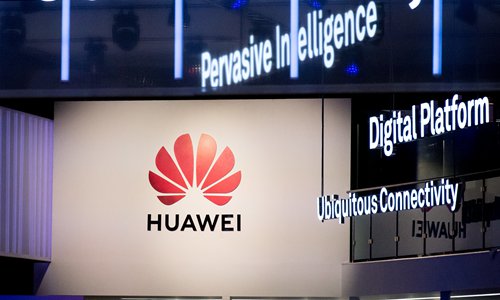HOME >> OPINION
China, Europe can build rules-based order
Source:Global Times Published: 2019/7/1 17:53:39

Photo: VCG
Editor's Note:
Spain became one of the first European countries to roll out a 5G network as Vodafone Espana, in cooperation with Chinese tech company Huawei, commercially launched the service in 15 cities, including Madrid and Barcelona, earlier this month. Why did Spain include Huawei in its 5G network development despite US pressure on its European allies? How can China and Europe enhance cooperation in the face of the US-initiated trade war and protectionism? Global Times (GT) reporter Yu Jincui talked to former Spanish ambassador to China Eugenio Bregolat (Bregolat) about these issues. Bregolat served as Spanish envoy to China three times. He is now a senior fellow at Geocenter, ESADE Business School.
GT: Vodafone Spain Director of Technology Ismael Asenjo told the media that the decision to cooperate with Huawei is based on "technological and not political reasons." How do you see Spain's attitude to Huawei's 5G technology?
Bregolat: The early roll-out in Spain of a 5G network proves our interest in a technology in which Huawei is the world leader. Huawei has been accused of copying American technology. But you do not become a world leader by copying. It takes something else, like enormous investment in R&D, or developing more patents than your competitors. Why did the US and Europe not make the efforts necessary to match China in this technology? Huawei has proved both its technological prowess and its strategic vision.
China cannot ignore the technological frontier. When it did so in the past, missing the industrial revolution, it was defeated in the Opium War. The image of wooden Chinese ships being sunk by the steel British vessels is worth one thousand words. China then suffered a "Century of Humiliation." A hard lesson was learned. To ask China to ignore the technological frontier is tantamount to asking it to accept the risk of another military defeat and, perhaps, another century of humiliation. And no country can accept this.
GT: Since the Huawei row began to simmer, many observers have felt that a technological cold war is looming or has perhaps already started. What do you think of this view?
Bregolat: The US crackdown on Huawei and other Chinese technology companies is a first step toward a technological cold war. But hopefully it is not irreversible. The US technology companies will also suffer if this war intensifies, and they are putting pressure on the US administration to reach an agreement with China. It is hard so see how the largest US companies, including the technological ones, would be ready to cede the Chinese market to their European, Japanese or Korean competitors; in some sectors it is already the biggest market in the world, and within a few years it will be the biggest in just about everything.
GT: The US is pressuring European countries to shun Huawei. Will European countries bow to US pressure? How will this affect US-European relations?
Bregolat: Spain and the other members of the European Union are independently assessing the national security implications of 5G technology, irrespective of its country of origin. The EU will take a decision on the matter in due course.
GT: Europe has its own trade dispute with the US, why do you think the US is using tariffs against other countries? What influence will it have on the global economy?
Bregolat: Europe thinks that to use the tariff stick, be it against China or against Europe or any other country, is a misguided policy. Europe also has well-known differences with China over issues such as market opening, intellectual property and public procurement. But we believe in solving our differences through negotiations within the WTO framework, not through unilateral sanctions. The WTO mechanism can be updated, but a rules-based international trading system is vital to avoiding the law of the jungle. The trade war initiated by the US could derail the still frail recovery of the world economy, as the IMF and the OECD have been warning.
GT: What will be the impact of the China-US trade war on Europe?
Bregolat: The EU is the biggest trade bloc in the world. Therefore, it is obviously interested in open, rules-based markets. We still hope that a solution can be found in the US-China dispute that will save the international trading system and avoid its fragmentation.
GT: What could China and Europe do to deepen cooperation in the face of rising US protectionism and unilateralism?
Bregolat: Europe and China have to solve their differences over the negotiating table, so that they can work together to build a multilateral, rules-based world order.
Posted in: VIEWPOINT